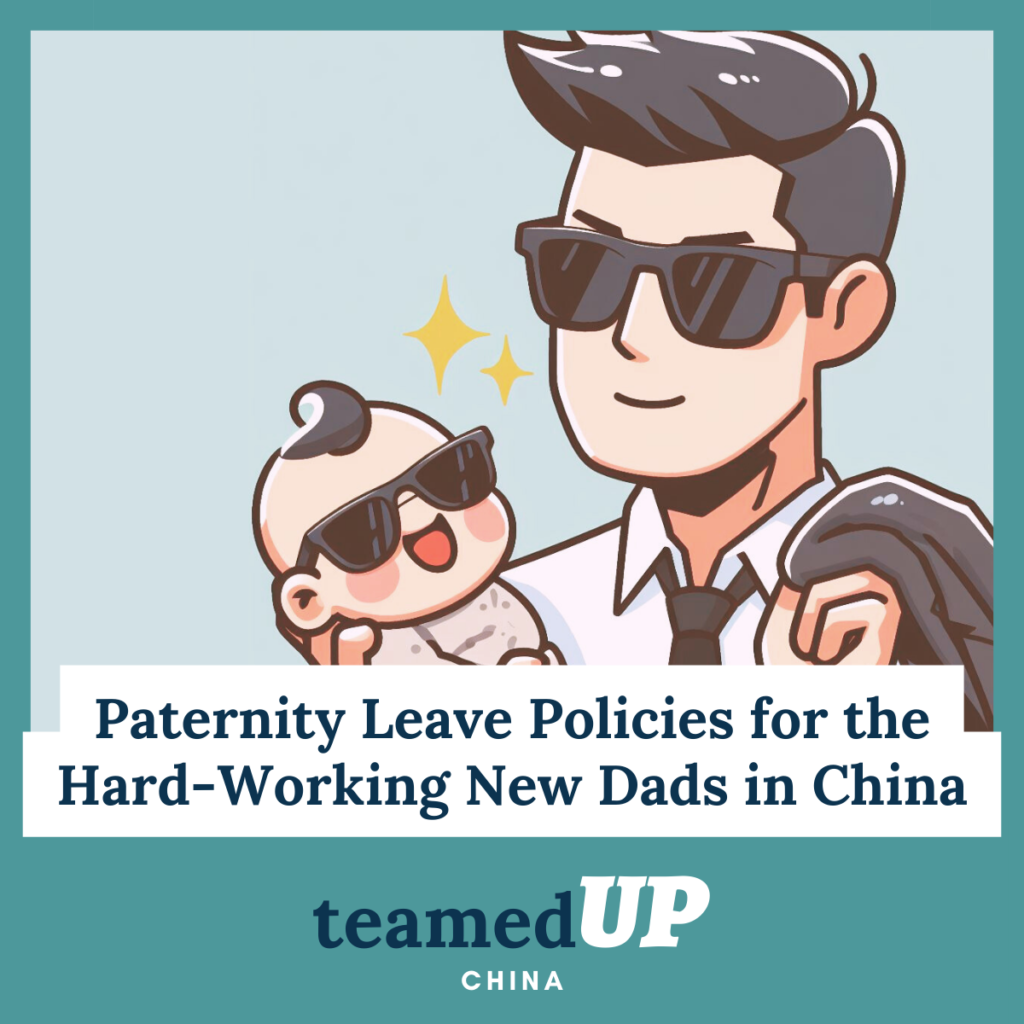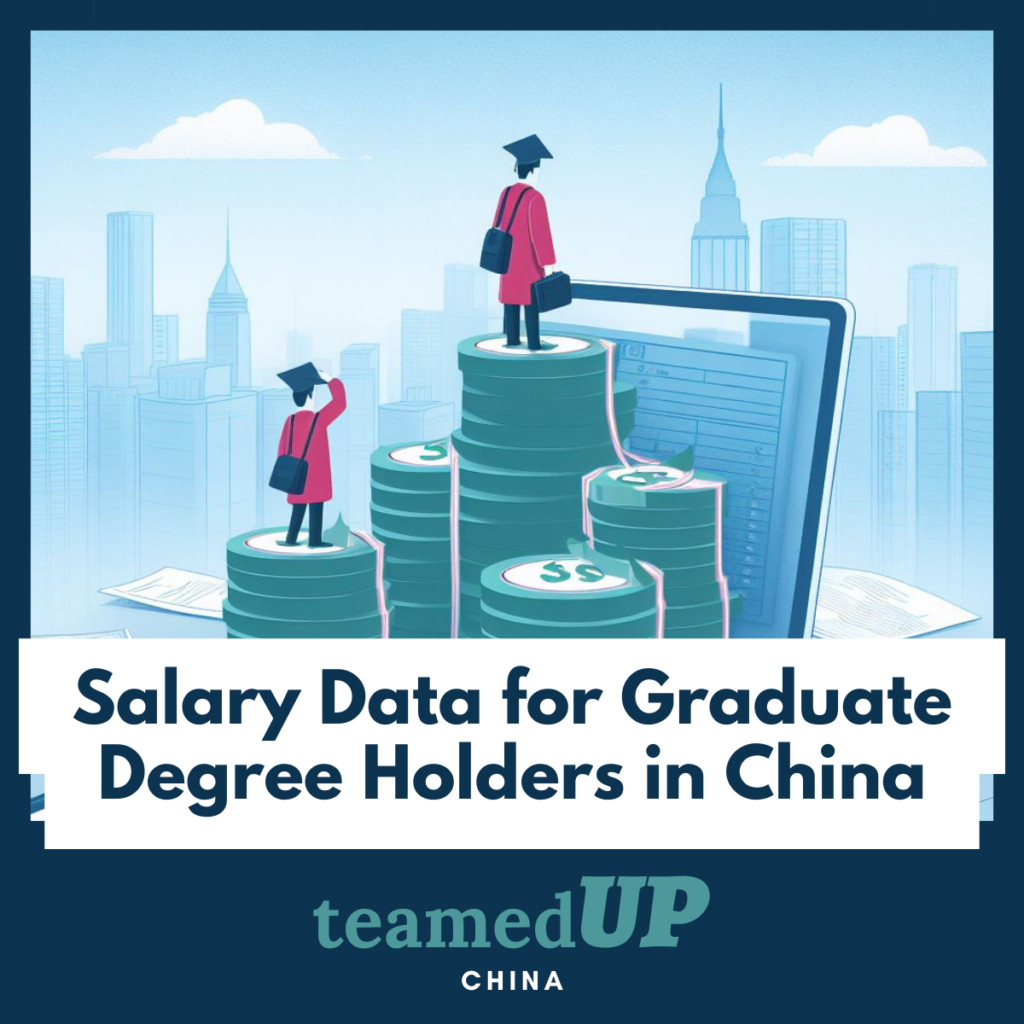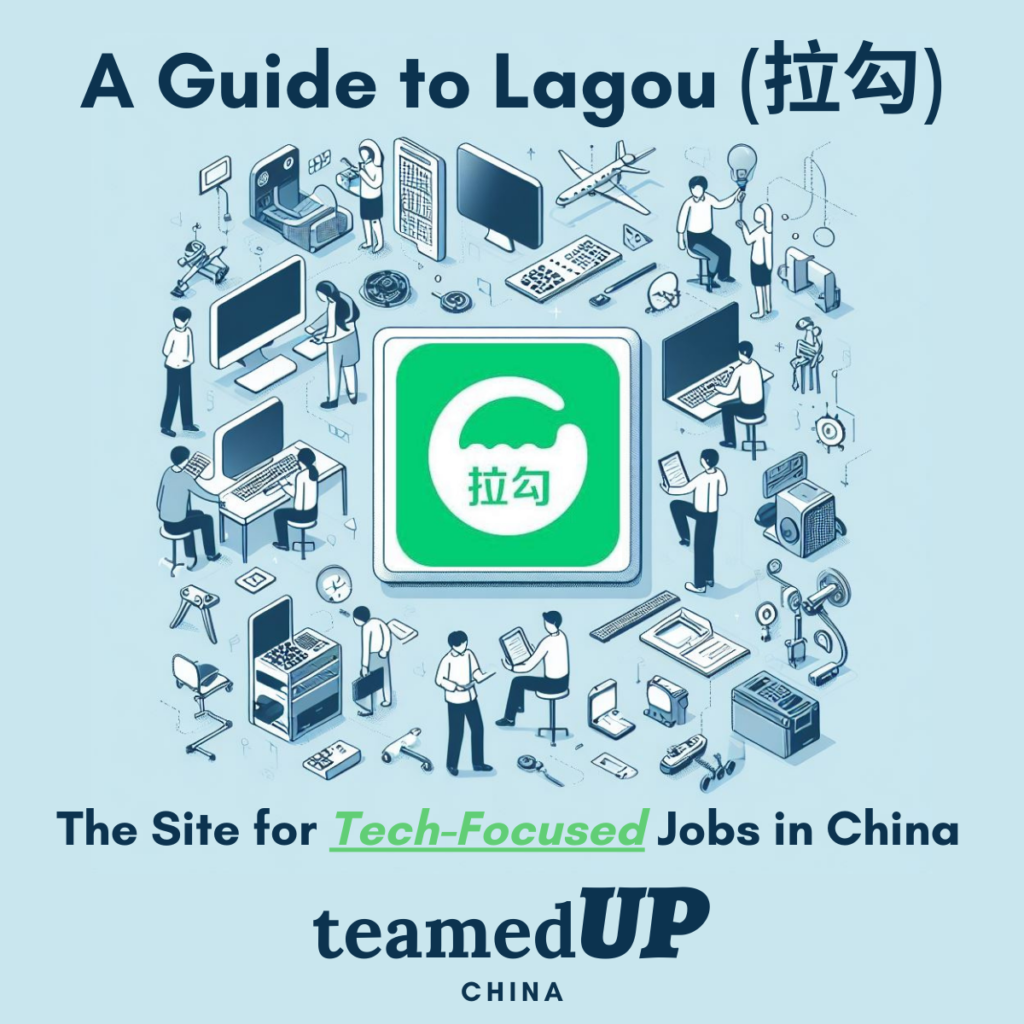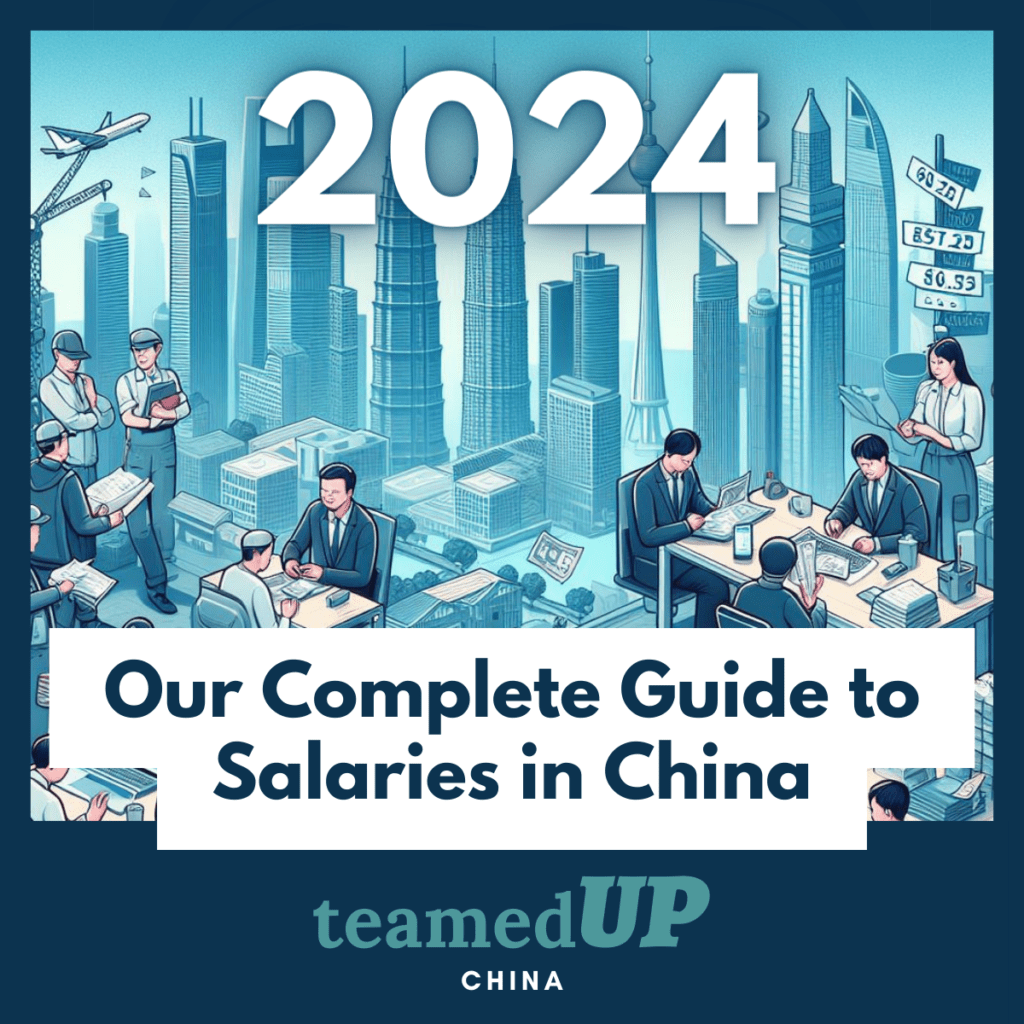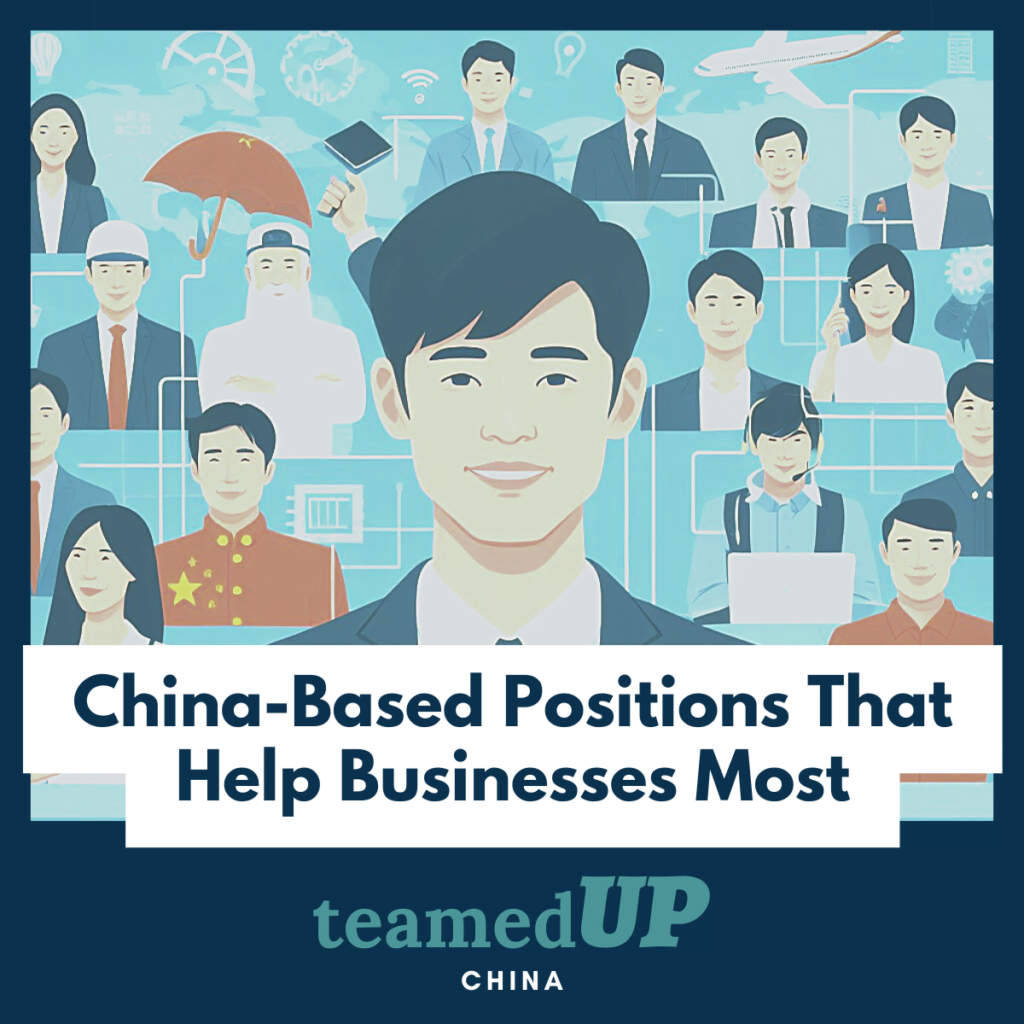Paternity Leave Policy and Benefits for New Working Dads in China
This one goes out to all of the hard-working fathers in China! Let’s take a look at general paternal leave and benefits for working dads across China. (in case you’d like to know about the moms as well, here’s out companion piece on Maternity Leave in China..! Some other related benefits you may want to learn about are Marriage Leave in China & Childcare and Elderly Care Work Leave in China.) Paternity Leave in China All provinces of China support paid paternity leave. The amount of time for paid paternity leave ranges from 10 to 30 days. According to a 2023 report from INLPR (the International Network on Leave Policies and Research), paternal leave policy is as follows: National Policy: None. There is no statutory requirement for paternal leave on the national level. Province Level: Supported in all provinces. Paternity leave policies are generally the responsibility of individual provinces, and the exact amount of time varies across the country: 10 days: Shanghai. 15 days: Beijing.* 20 days: Inner Mongolia, Liaoning, Hunan, Sichuan, Chongqing, Shaanxi (conditional). 25 days: Ningxia, Jilin. 30 days: Yunnan, Gansu, Henan, Anhui, Jiangxi, Guangxi, Tibet. *Bonus! In Bejing and other select provinces, you can trade extended maternity leave days for more paternity leave days with your spouse! From Bejing.gov: “Transfer of a female employee’s extended maternity leave to her husband: In the event that a female employee wishes to shorten the extended maternity leave to which she is entitled, her husband’s paternity leave may be extended accordingly, provided that the couple’s employers agree with such transfer. It is advisable that employers improve their leave management systems in ways that allow for such transfer against the proofs issued by a couple’s employers.” – Regulations of Beijing Municipality on Population and Family Planning Close the Wechat down for a few days dad – childcare leave is offered all across China! Is Paternity Leave Paid in China? Yes! Paternity leave mandated by the provincial-level government (listed above) is be paid at 100% of salary. When Should a Working Father take Paternity Leave in China? There is no legal requirement as to when the Paternity leave should be taken. Companies are encouraged to consider fertility policies and keep records of leave. Working Fathers-to-be may want to check with their employer in advance to prepare a plan for paternity leave. Paternity Leave – Enjoy it when needed (within reason)! Annual Parental Leave in China Another Good-to-know Benefit for New Working Fathers Parental leave in China is a relatively recent benefit. In 2019, a government entity related to Guiding Opinions on Promoting the Development of Infant Care Services under 3 years old, encouraged all provinces of China to explore parental leave. In 2021, parental leave was officially added to The Population and Family Planning Law of the People’s Republic of China. Parental leave is provided in China, and ranges from 5 days (in places like Beijing and Shanghai) to 30 days (in Shaanxi province). A majority of provinces provide 10 days of parental leave. Here are some exceptions: 5 days: Beijing, Shanghai. 15 days: Shanxi, Gansu, Qinghai. 30 days: Shaanxi. Only Promoted (no set government policy): Jilin, Jiangsu. Give them paid leave, and the China-based working fathers shall rejoice! When is Parental Leave Taken in China? Parental leave is taken after maternity and paternity leave. It is generally provided annually for the first several years of the child’s life (following the child’s birthday as a calendar). Here’s an example of the policy laid out in Beijing (from Beijing.gov): For every full year of a child’s life, either of his/her parents shall be entitled to a parental leave of five business days until he/she has reached three years of age. In the event that an employee fails to take his/her annual parental leave, the parental leave will not be carried over to the next year. For instance, if a child is born on June 1, 2021, either of his/her parents shall be entitled to a parental leave of 5 business days in each of the following periods: June 1, 2021-May 31, 2022, June 1, 2022-May 31, 2023, and June 1, 2023-May 31, 2024. Is Parental Leave Paid in China? Yes. Parental leave mandated by provincial-level governments (listed above) is paid at 100% of salary. Hiring in China? We can help, and stay within your budget! The TeamedUp China Super-Recruiters are on the scene! Our China Recruiter Pro service helps companies utilize leading Chinese job platforms such as Maimai, Zhaopin, 51job, BOSS Zhipin, Lagou, and Liepin. Contact Us for a free consultation to discuss hiring goals, salary & compensation budgets in China, and if TeamedUp China is the right fit to support your organization. Book A Call Get in Touch Let’s find your next great China-based team member today. References & Further Reading: Beijing.Gov: https://english.beijing.gov.cn/latest/lawsandpolicies/202112/t20211223_2570599.html Leave Network: https://www.leavenetwork.org/fileadmin/user_upload/k_leavenetwork/annual_reviews/2023/Blum_etal_LPRN_full_report_2023.pdf ROEDL: https://www.roedl.com/insights/china-special-leave-maternity-parental-paternity-nursing-family-planning
Paternity Leave Policy and Benefits for New Working Dads in China Read More »
